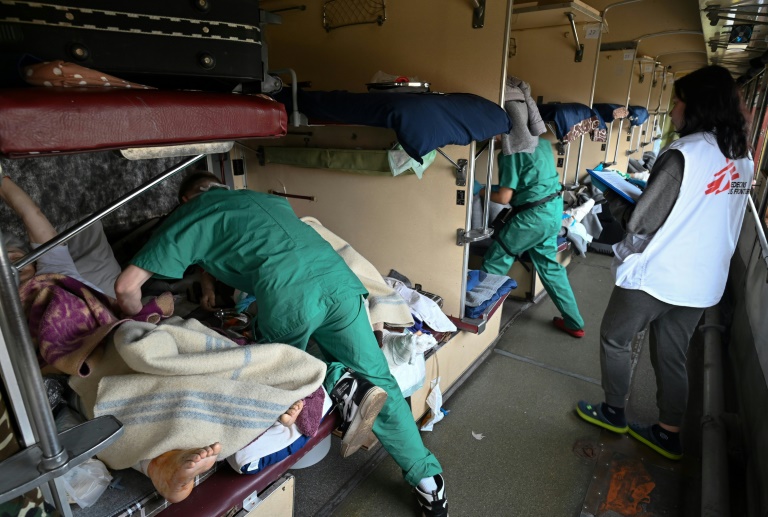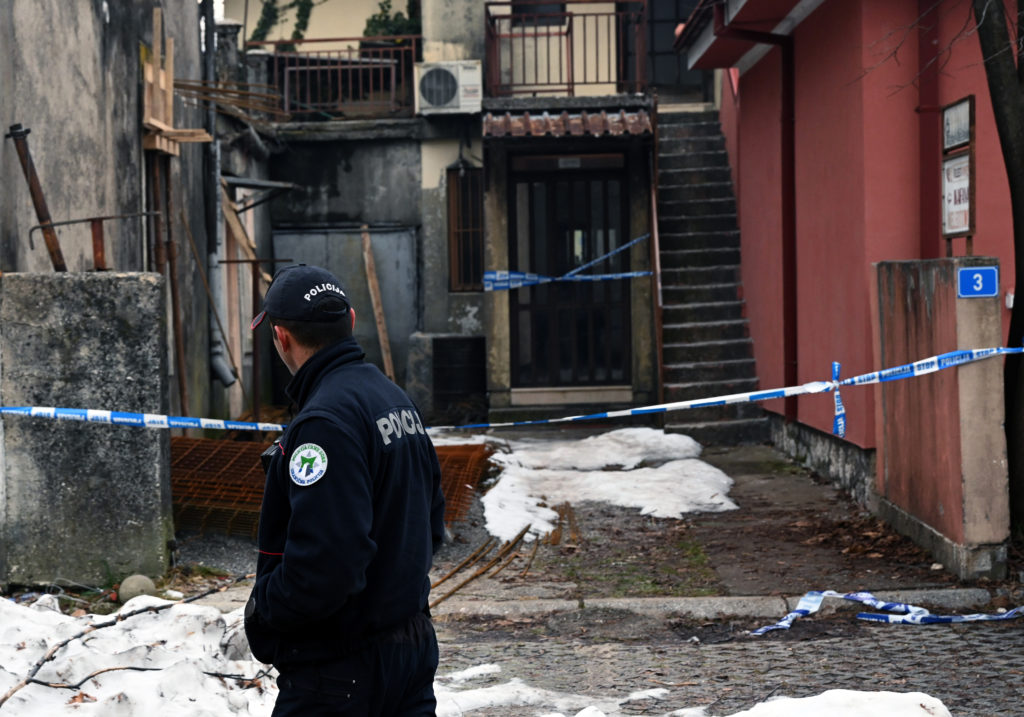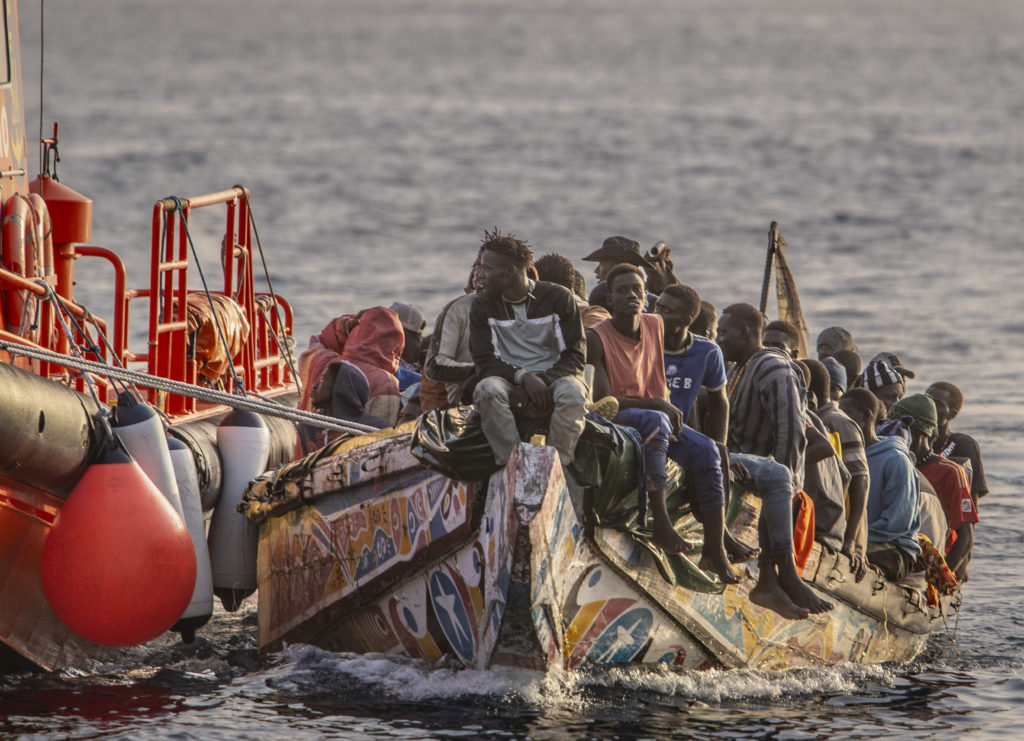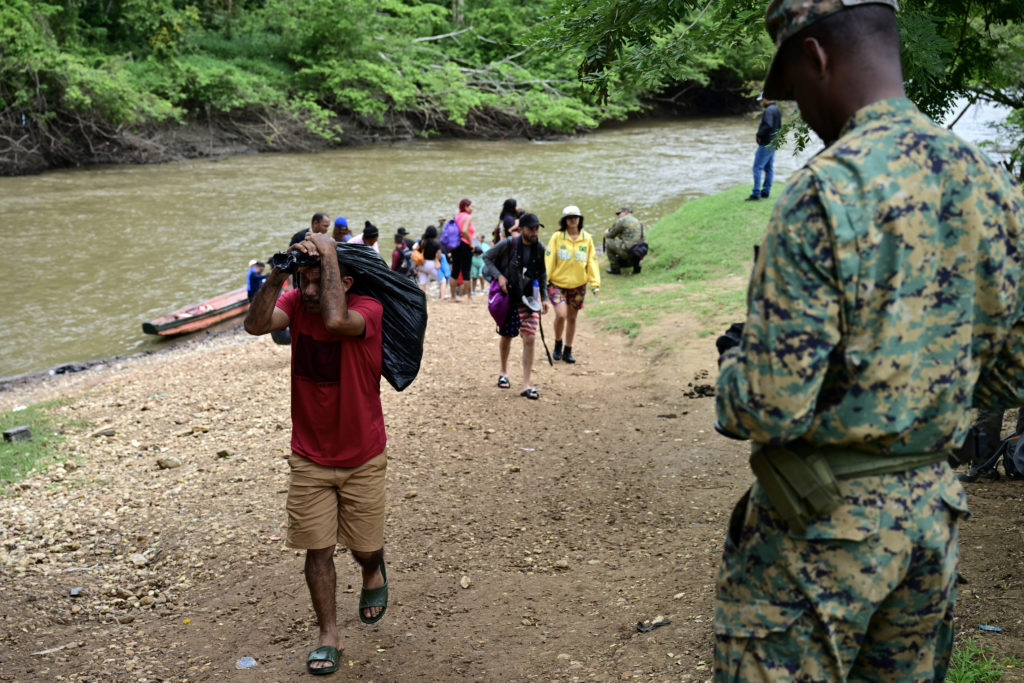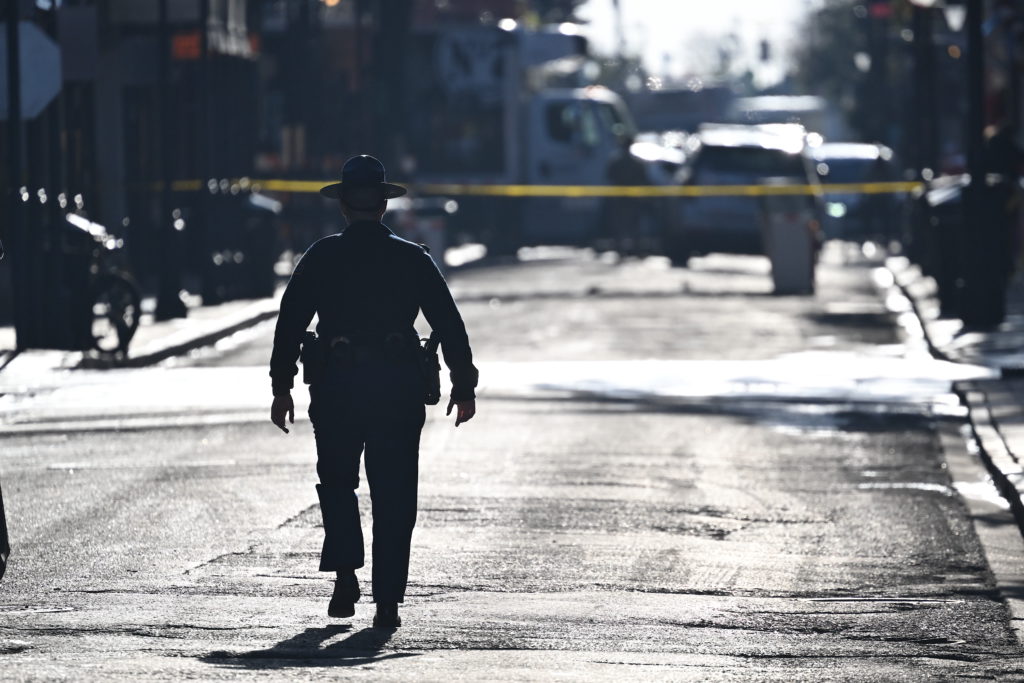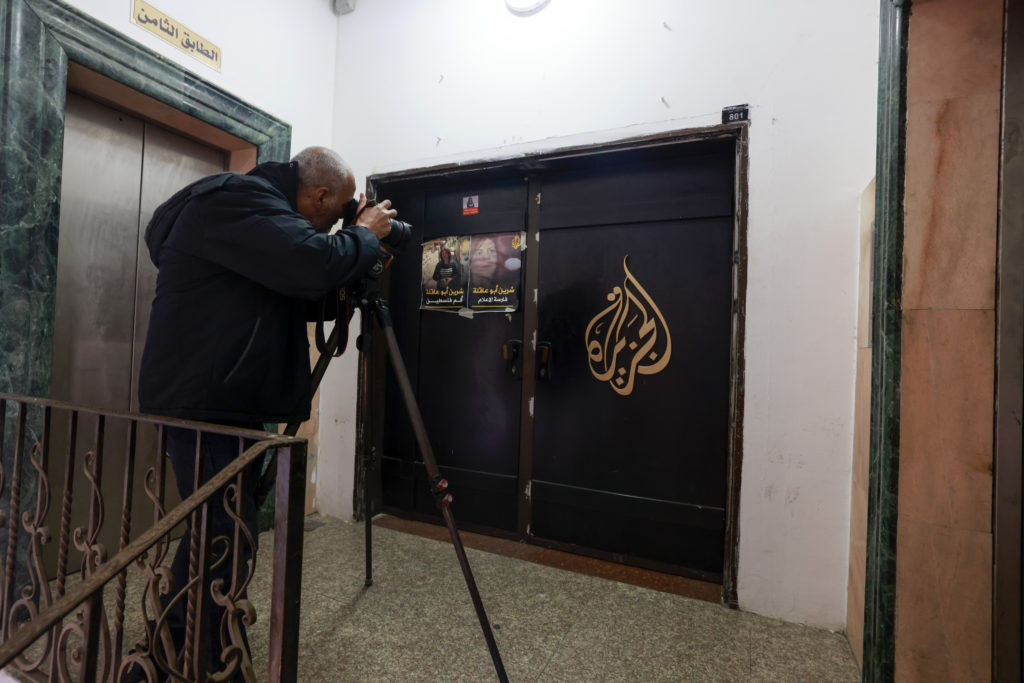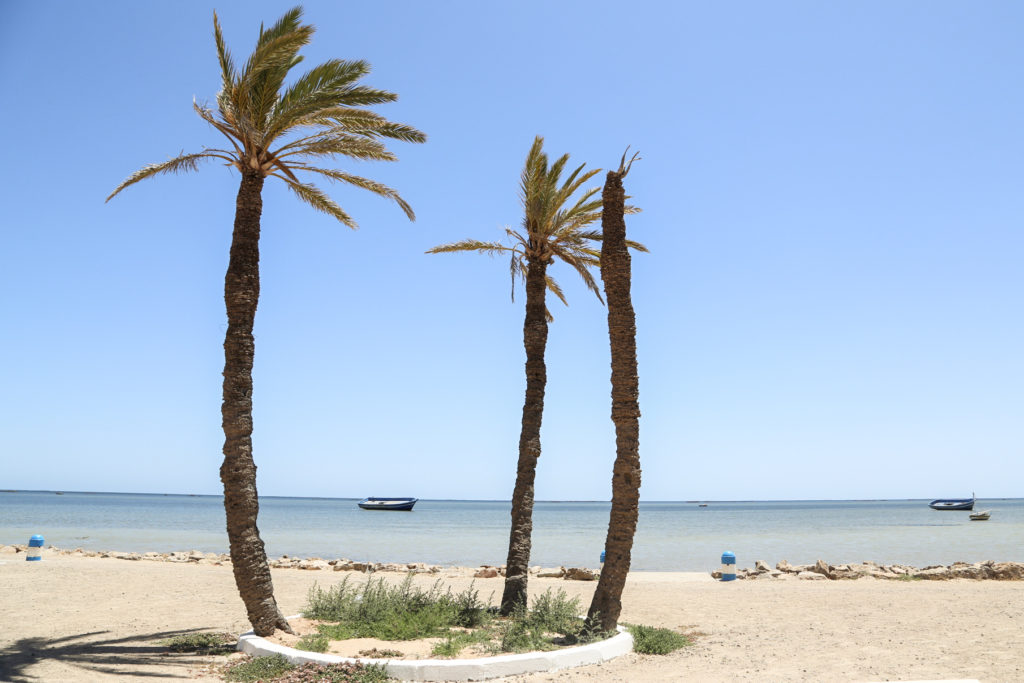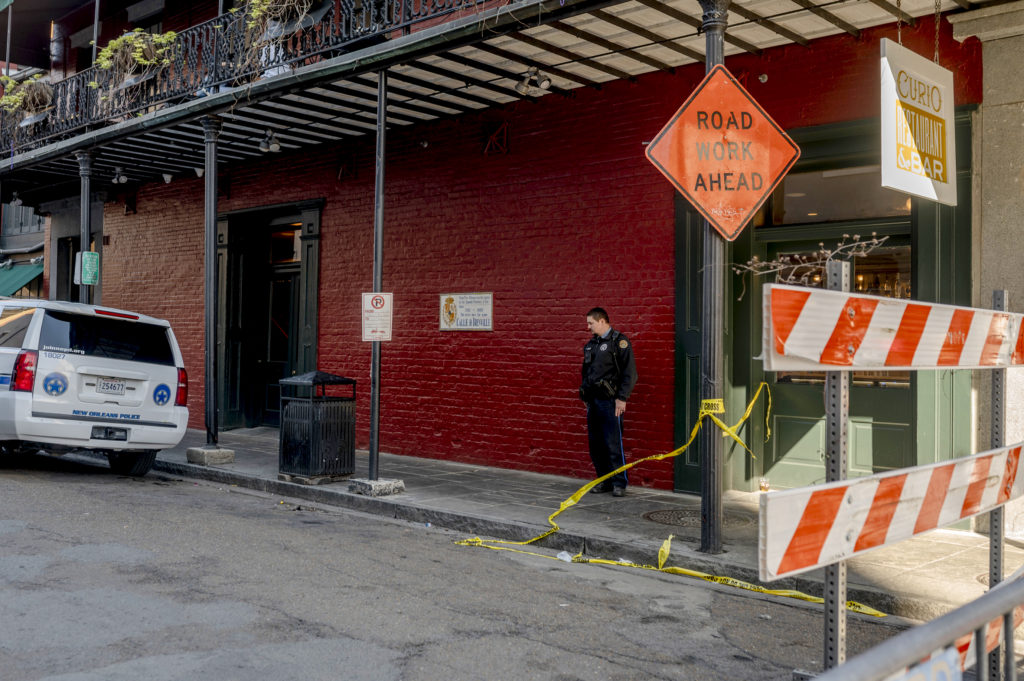Ukraine steeled itself on Monday for what could be the imminent fall of Mariupol to Russian troops as President Volodymyr Zelensky said he believed “tens of thousands” of people had been killed in Moscow’s assault on the strategic southern port city.
With the war grinding toward its seventh week, Ukrainian forces said they were also bolstering their positions in the east ahead of an anticipated massive Russian campaign.
Austria’s chancellor meanwhile became the first European leader to visit Moscow since the Russian invasion, saying he would raise alleged war crimes in devastated areas around Kyiv that had been under Russian occupation.
Ukrainian authorities say over 1,200 bodies have been found in the area so far and that they are weighing cases against “500 suspects”, including President Vladimir Putin and other top Russian officials.
French investigators arrived in Ukraine to help probe suspected Russian atrocities in the area, as the European Union earmarked 2.5 million euros ($2.7 million) to the International Criminal Court for future Ukraine cases.
Russia is believed to be trying to link up occupied Crimea and Moscow-backed separatist territories Donetsk and Lugansk in Donbas and has laid siege to Mariupol, once a city of more than 400,000 people.
“Today will probably be the last battle, as the ammunition is running out,” the 36th marine brigade of the Ukrainian armed forces said on Facebook.
“It’s death for some of us, and captivity for the rest,” it added, saying it had been “pushed back” and “surrounded” by the Russian army.
A pro-Russia rebel leader, Denis Pushilin, said separatist forces had already taken control of the city’s port, in comments reported by the RIA Novosti news agency.
Speaking to South Korea’s National Assembly by video link in an appeal for military assistance, Zelensky said Russia had “completely destroyed” the city and “burned it to ashes”.
“At least tens of thousands of Mariupol citizens must have been killed,” he said.
Russian forces are also turning their focus to the Donbas region in the east, where Zelensky said Russian troops were preparing “even larger operations”.
“They can use even more missiles against us… But we are preparing for their actions. We will answer,” Zelensky said.
Lugansk governor Sergiy Gaiday warned that the region could suffer as badly as Mariupol.
– ‘War on civilians’ –
Over the weekend, further strikes hampered evacuations in and around Kharkiv in the northeast, killing 11 people including a seven-year-old child, regional governor Oleg Synegubov said.
“The Russian army continues to wage war on civilians due to a lack of victories at the front,” he said on Telegram.
In Dnipro, an industrial city of around one million inhabitants, Russian missiles rained down on the local airport, nearly obliterating the facility, local authorities said.
Gaiday said a missile strike on a railway station in the city of Kramatorsk on Friday, which killed 57 people, had left many afraid to flee.
He again urged people to leave the region, with five humanitarian corridors agreed for Monday.
“You are alive because a Russian shell has not yet hit your house or basement — evacuate, buses are waiting, our military routes are as secure as possible,” he wrote on Telegram.
Russia has denied carrying out the strike.
Over the weekend, nearly 50 wounded and elderly patients were transported from the east in a hospital train by medical charity Doctors Without Borders (MSF), the first such evacuation since the Kramatorsk attack.
Electrician Evhen Perepelytsia was rescued after he lost his leg in shelling in his hometown of Hirske.
“We hope that the worst is over — that after what I’ve been through, it will be better,” said the 30-year-old after arriving in the western city of Lviv.
– EU talks sanctions –
On the diplomatic front, EU foreign ministers were meeting Monday to discuss a sixth round of sanctions, with concerns that divisions over a ban on Russia gas and oil imports could blunt their impact.
Austria is an EU member, but does not belong to NATO, and Chancellor Karl Nehammer’s spokesman said Brussels, Berlin and Kyiv had been informed about the talks with Putin, held at the president’s residence in Moscow.
Austrian Foreign Minister Alexander Schallenberg said earlier that Nehammer would tell Putin that he “is isolating Russia, that he will lose this war morally, and that he is doing everything wrong that can be done wrong”.
US President Joe Biden meanwhile will hold virtual talks on Monday with Indian Prime Minister Narendra Modi, just weeks after saying New Delhi had been “shaky” in its response to the invasion.
A US spokeswoman said the two leaders would consult on ways to offset the “destabilising impact (of the war) on global food supply and commodity markets”.
Russia was responsible for an escalating global food crisis because of its bombing of wheat stocks and preventing ships from carrying grain abroad, the EU’s top diplomat Josep Borrell said Monday.
The World Bank warned Sunday that Ukraine’s economy would collapse by 45 percent this year — far worse than it predicted even a month ago — while Russia would see an 11-percent decline in GDP.
– ‘Prevent one massacre’ –
Despite Kyiv’s allegations of Russian atrocities, Ukraine’s Foreign Minister Dmytro Kuleba on Sunday told NBC’s “Meet the Press” he was still open to negotiating with Moscow.
“If sitting down with the Russians will help me to prevent at least one massacre like in Bucha, or at least another attack like in Kramatorsk, I have to take that opportunity,” he said.
Bucha — where authorities say hundreds were killed, some with their hands bound — has become a byword for the brutality allegedly inflicted under Russian occupation.
More than 4.5 million Ukrainian refugees have now fled their country, the United Nations refugee agency said — 90 percent of them women and children.
At least 183 children have died and 342 were injured in Ukraine in 46 days of the Russian invasion, the prosecutor general’s office said on Telegram.
burs-dlc/jj

